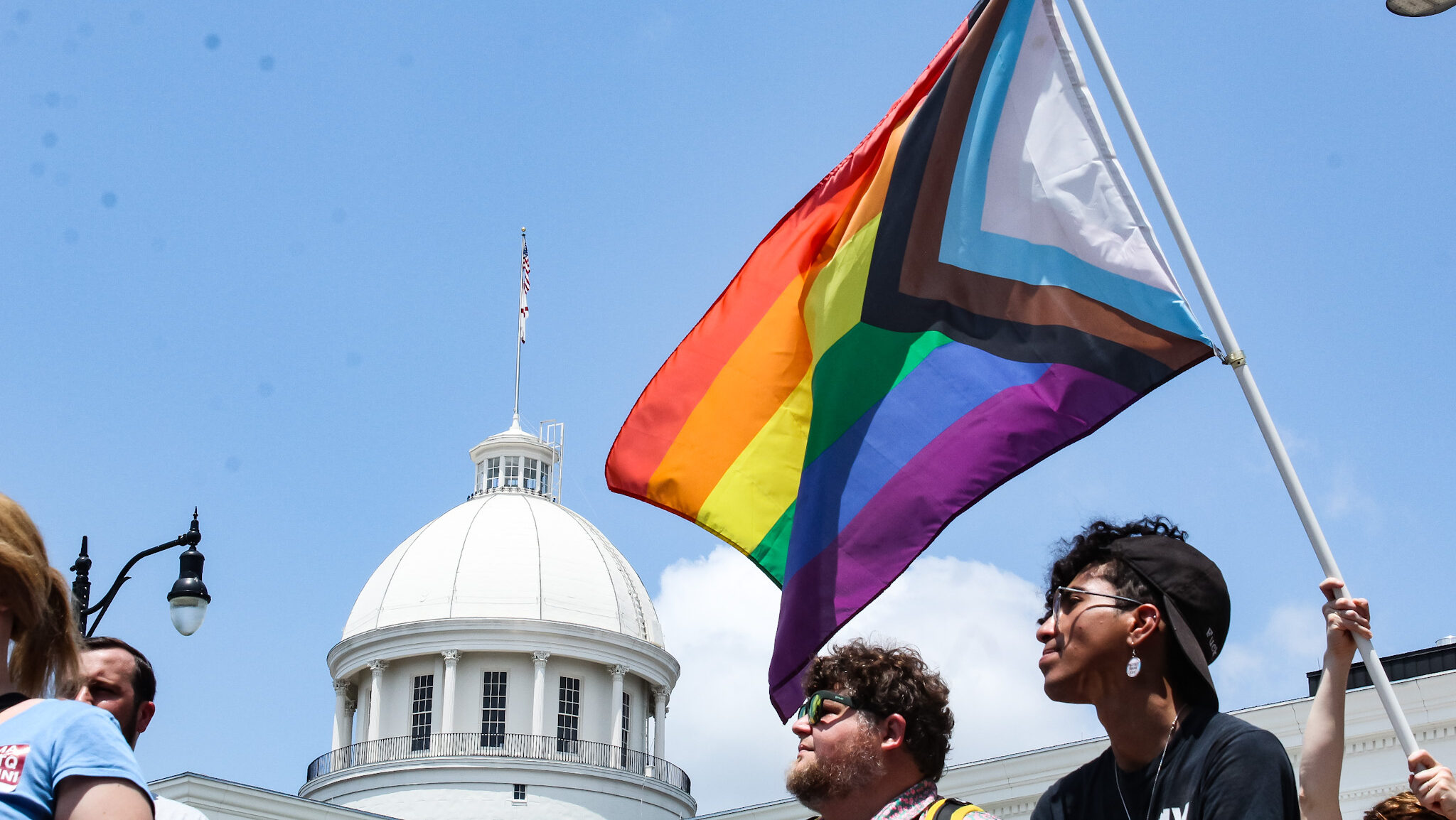|
Getting your Trinity Audio player ready...
|
Last week, the Alabama Senate passed SB79, a bill that aims to add official definitions for “male” and “female” into state law. The legislation, put forward by state Sen. April Weaver, R-Brierfield, mirrors the “What is a Woman Act” reintroduced in the House this year by State Rep. Susan DuBose, R-Hoover.
While Republicans like Weaver and DuBose claim that the legislation is a simple matter of definitions and clarification for state agencies, activists argue that the bill is actually a targeted attack on the rights and liberties of transgender Alabamians.
On Friday, the Alabama Trans Rights Action Coalition, ALTRAC, rebuked Weaver’s legislation in an official press release.
“This week, lawmakers in the Senate hurriedly voted through a bill that would make transgender people — and many non-transgender (‘cisgender’) women — subject to harassment and assault in public bathrooms. The bill, which this year has resurfaced as Senate Bill 79 (SB79) and House Bill 107 (HB107), has been called the ‘Women’s Bill of Rights’ by the out-of-state organization that authored it. This is despite the fact that the bill ‘does not grant women any rights,’ as its sponsors have openly admitted in prior years, despite the fact that their party is beginning to dismantle equal employment protections for women nationally, and despite the fact that the current Republican presidential administration is weakening the ability of school-age girls to speak out against sexual assault,” reads the coalition’s statement.
ALTRAC also argued that SB79 will not make women’s spaces safer, despite Weaver’s claims to the contrary.
“SB79’s sponsor, Senator April Weaver, says the bill is a ‘protection act’ for women’s ‘single sex spaces’, but failed to acknowledge that it would force transgender men, many of whom have full beards and deep voices (whom this bill defines as ‘female,’ ‘woman,’ and even ‘mothers’), into women’s restrooms and changing rooms,” the press release states.
The organization cited comments made by Micah S., a transgender man from Birmingham who testified at the bill’s committee hearing and explained why it would be unsafe for him to use a woman’s restroom despite the legislation defining him as a woman. “I could be targeted by bystanders who think I’m trying to harass the women in there, despite just trying to follow your law,” he said of SB79. “This bill will not keep your daughters or wives safe, and will instead open them up to having their womanhood policed by strangers.”
The organization also argued that the bill would also “put transgender women, many of whom have developed full breasts, at risk of sexual harassment and assault by requiring them to share intimate spaces with men.”
Beyond the issue of safety, the coalition also criticized the bill for ignoring the complexities of biological sex, such as the existence of intersex people who biologically do not fall into the bill’s strict definitions of “men” and “women.”
“[Weaver] and past sponsors of this bill also refused to acknowledge the inherent complexity of biological sex — that it is based on numerous factors, some of which are not immediately observable at birth, and that it is malleable — despite being presented with multiple Ph.D. biologists in public hearings to explain this exact topic. Her claim that this is only a ‘definitions’ bill glosses over the fact that these definitions will modify every single law and policy in the entire state that mentions sex characteristics or gender,” their statement reads.
ALTRAC also questioned the process used by the Senate to rush the bill through the chamber.
“The process legislators used to expedite the bill was questionable… Allison Montgomery, an ALTRAC volunteer, said that legislators ‘used an unfairly opaque and rushed process to discourage public input,'” reads the press release. “Indeed, the legislation was introduced as a markedly different bill Tuesday afternoon, scheduled that evening for a next-day committee meeting, and passed by that committee after a ‘substitution’ process the following afternoon.”
“Only three out of thirteen speakers opposing SB79 were permitted to speak, and for only one minute apiece. These speakers represented Alabama citizens who had traveled from every corner of the state. The two lobbyists supporting the bill, Alabama Policy Institute and the Eagle Forum, somehow already had copies of the new legislation, while opposing speakers were left to improvise and adapt their remarks to the sudden switch,” ALTRAC reported.
Even if the intent behind the legislation is simply a matter of clarifying definitions, ALTRAC questioned the need for such clarification in the first place and argued that the negative consequences for transgender Alabamians would far exceed any benefit that clarification might have.
“The impact this bill would have on transgender Alabamians, who already face disproportionate amounts of discrimination in employment and housing, among other areas, would be extreme,” the statement continues. “Sponsors DuBose and Weaver have vaguely noted that the bill would ‘provide the courts with clarity,’ while never expounding upon what legal clarity courts need in regard to a person’s gender or sex. Under the definitions given in this bill, transgender people would be punished on the grounds that they are not who they say they are, when they are merely trying to live their lives like anyone else.”
The organization also made note of similar controversies regarding transgender exclusion and ‘bathroom policing’ that have occurred at the national level.
“Claiming that the bill would protect women’s spaces also ironically makes women’s spaces less safe for cisgender women,” the coalition stated. “Recently at the U.S. Capitol, Representative Lauren Boebert stormed into a women’s bathroom to confront a woman she thought looked transgender. If law were backing the harassment she inflicted upon this woman, it could easily have been a police officer barging into the women’s room instead.”
The incident involving Boebert came after Speaker of the House Mike Johnson, R-LA, enforced a rule barring transgender people from using the single-sex bathrooms near the House floor that align with their gender identities. That policy appeared to be enacted in response to the election of Rep. Sarah McBride, D-DE, the first ever transgender member of Congress.
Additionally, the U.S. House also recently passed a bill which would ban transgender athletes from competing in sports according to their gender identity. A companion to that bill was also introduced in the Senate by U.S. Sen. Tommy Tuberville, R-Ala.
ALTRAC concluded their press release by calling on Alabama’s lawmakers to “sponsor legislation that addresses the needs of Alabama’s largely working-class constituency instead of endlessly legislating proxy issues and relying on scapegoating minorities to turn people out to the polls.”



















































